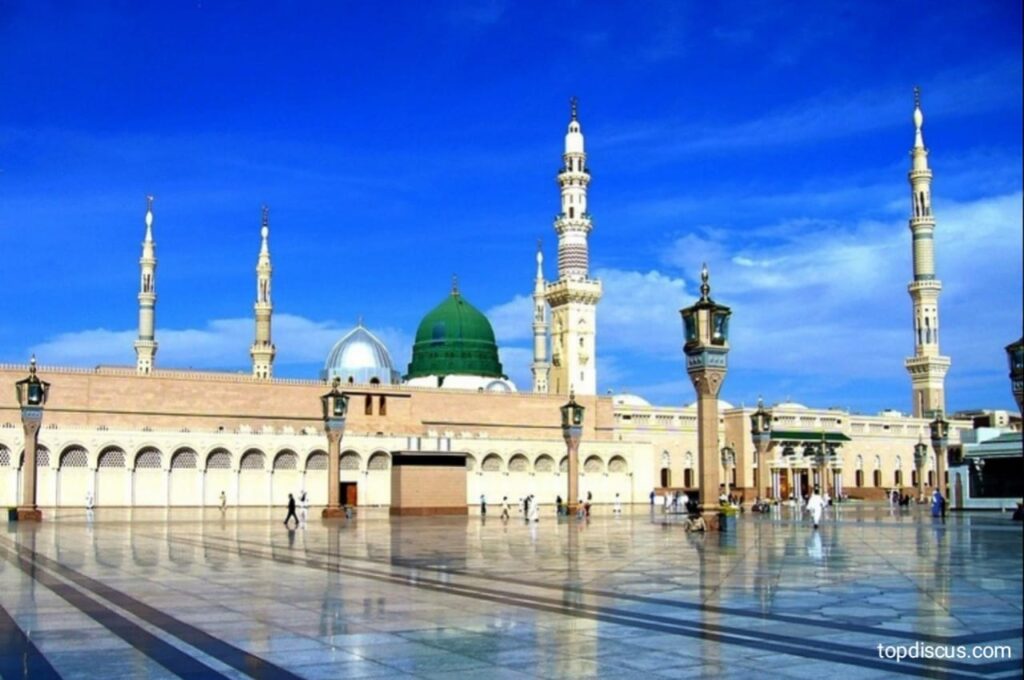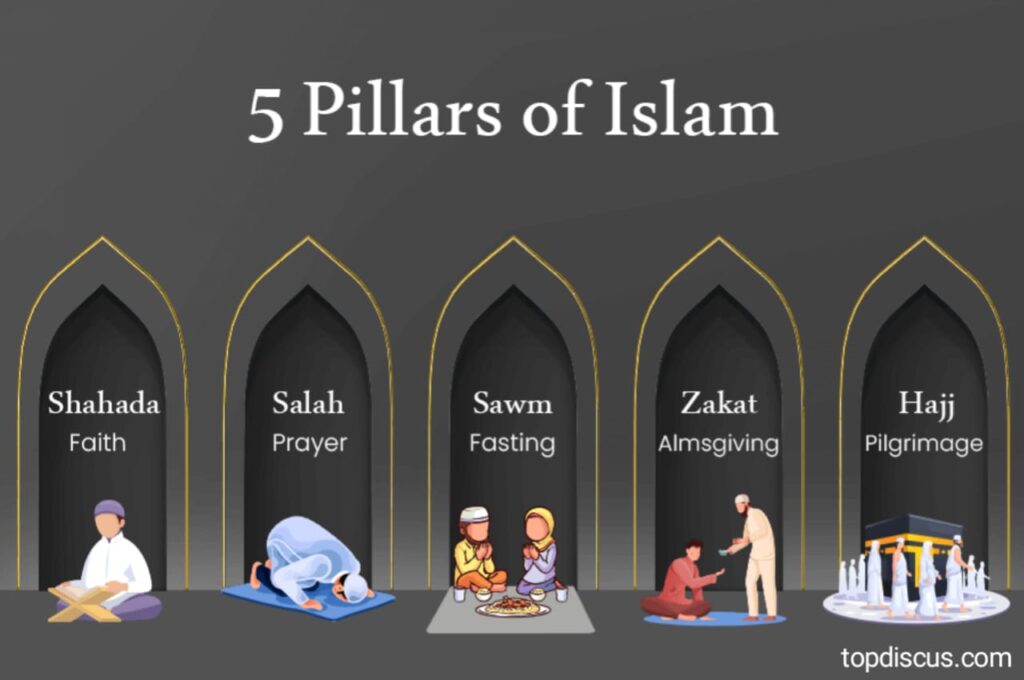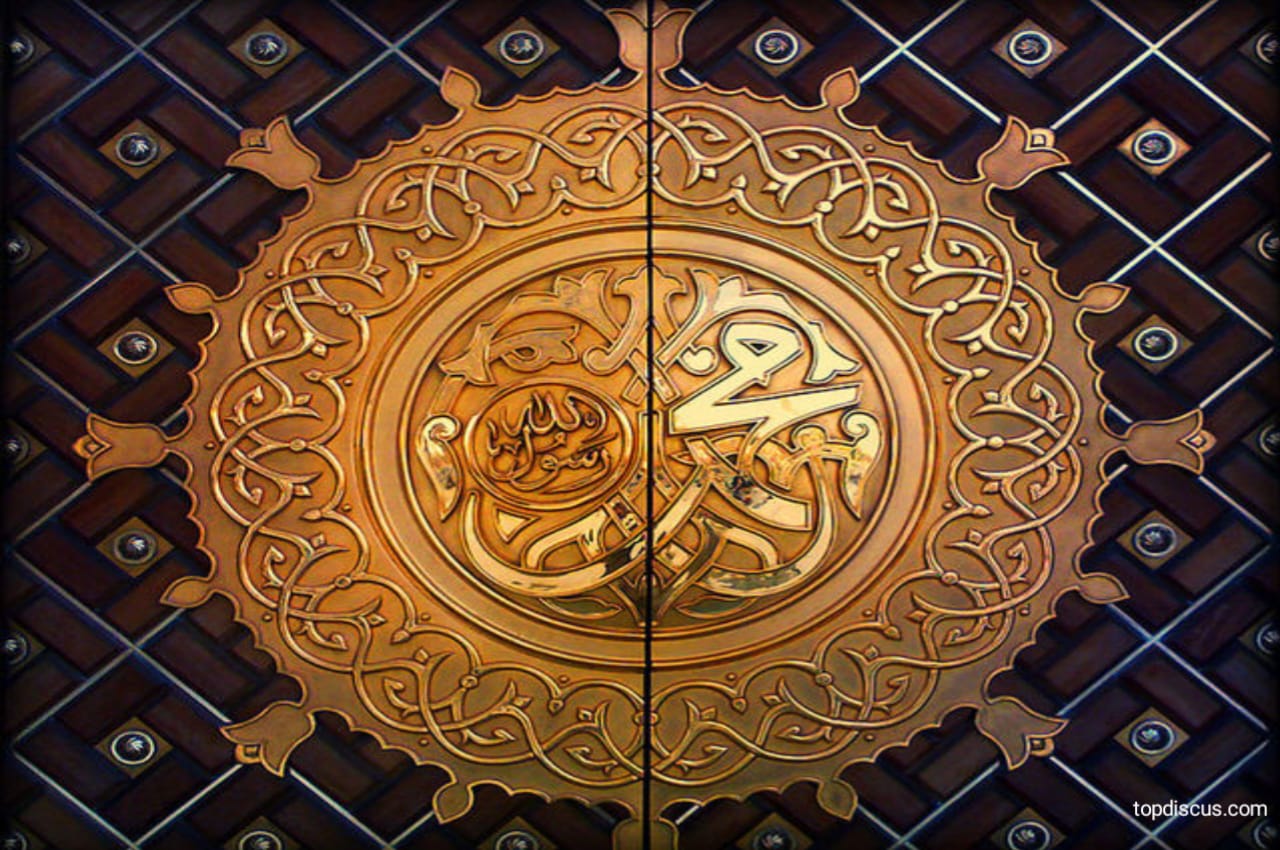“Who is the World’s Best Man” Prophet Hazrat Muhammad (S.A.W) – a name that resonates with millions around the world, evoking feelings of reverence and admiration. His life, teachings, and contribution to humanity are unparalleled, making him one of the most influential figures in history.
In this blog post, we delve into the extraordinary journey of the World’s Best Man Prophet Muhammad (S.A.W), from his humble beginnings to becoming the final messenger of Islam. Join us as we explore his early life and childhood, examine his profound teachings and beliefs, discover his remarkable contributions to the world, and reflect upon his lasting legacy. Get ready to be inspired by the incredible story of this remarkable man who continues to shape our lives today.
Childhood of Prophet Hazrat Muhammad (S.A.W):
 The World’s Best Man Prophet Hazrat Muhammad (S.A.W), the last messenger of Allah, was born in the year 570 CE in the city of Mecca. He belonged to the noble Quraysh tribe and was orphaned at a young age. Despite facing hardships, he grew up with a strong moral character and was known for his honesty, kindness, and wisdom.
The World’s Best Man Prophet Hazrat Muhammad (S.A.W), the last messenger of Allah, was born in the year 570 CE in the city of Mecca. He belonged to the noble Quraysh tribe and was orphaned at a young age. Despite facing hardships, he grew up with a strong moral character and was known for his honesty, kindness, and wisdom.
During his childhood, The World’s Best Man Prophet Muhammad (S.A.W) often sought solitude and would spend time reflecting on the beauty of nature. This introspective nature laid the foundation for his spiritual journey later in life.
As a teenager, he gained a reputation as Al-Ameen (the trustworthy) due to his integrity. He worked as a shepherd and also accompanied caravans on trading journeys across Arabia. These experiences exposed him to people from different backgrounds and cultures, shaping his understanding of human nature. The World’s Best Man Prophet Muhammad’s marriage to Hazrat Khadijah (R.A) at the age of 25 marked a significant turning point in his life. Hazrat Khadijah (R.A) provided emotional support during times of difficulty and encouraged him to embrace spirituality.
The early years of The World’s Best Man Prophet Hazrat Muhammad (S.A.W) were characterized by introspection, resilience, empathy towards others’ suffering, and humility before God’s creation – all qualities that would define him throughout his life as an exemplary leader.
The childhood of The World’s Best Man Prophet Mohammed (SAW) laid the groundwork for what would become one of history’s greatest legacies spreading Islam across continents while embodying its core principles of peace, justice, equality, and compassion.
These formative years shaped him into not just a religious figure but also an influential leader who championed social justice reforms, women’s rights, and equality amongst all races. The lessons learned during this period influenced how he conducted himself when faced with adversity or power.
The World’s Best Man Prophet Mohammed (SAW) treated everyone with respect regardless of their status or religion
and emphasized unity among diverse communities through dialogue rather than forceful conversions. Click Here to visit our Homepage.
The Prophethood of Hazrat Muhammad (S.A.W):
The World’s Best Man Prophet Mohammed (SAW) is considered the last and final messenger of ALLAH in the Islamic faith. His Prophethood marked a turning point in history, bringing divine guidance to humanity. Born in 570 AD in Mecca, he was known for his wisdom, honesty, and integrity even before receiving his prophetic mission.
At the age of 40, The World’s Best Man Prophet Mohammed (SAW) received his first revelation from ALLAH through the angel Jibrieel. This event marked the beginning of his Prophethood and set him on a path to spreading the message of Islam. Despite facing opposition and persecution from those who resisted change, The World’s Best Man Prophet Mohammed (SAW) remained steadfast in his mission.
Throughout his Prophethood, The World’s Best Man Prophet Mohammed (SAW) preached monotheism and emphasized the importance of worshipping one ALLAH alone. He taught principles such as justice, compassion, forgiveness, and kindness towards others regardless of their social status or beliefs.
The World’s Best Man Prophet Mohammed’s(S.A.W) teachings laid down a comprehensive framework for personal conduct as well as societal harmony. His revelations became compiled into the holy book of Islam known as the Quran which serves as a guidebook for Muslims worldwide.
The Prophethood of the World’s Best Man Prophet Mohammed (S.A.W)had profound implications not only on religious matters but also on social dynamics. It brought about significant transformations within Arabian society at that time by addressing issues including slavery rights, women’s rights, economic disparities, and tribal conflicts.
Moreover – rather than promoting violence or coercion – Prophet Muhammad’s (S.A.W) approach focused on dialogue and peaceful coexistence with people from different backgrounds. His life serves as an exemplary model for Muslims to follow today.
“Click Here for more information”
Teachings and Beliefs of Islam:
 Islam, the religion founded by the World’s Best Man Prophet Mohammed (S.A.W), is based on a set of core beliefs and teachings that guide the lives of its followers. At the heart of Islam lies the belief in monotheism – the worship of one God, known as ALLAH. This fundamental principle shapes every aspect of a Muslim’s life.
Islam, the religion founded by the World’s Best Man Prophet Mohammed (S.A.W), is based on a set of core beliefs and teachings that guide the lives of its followers. At the heart of Islam lies the belief in monotheism – the worship of one God, known as ALLAH. This fundamental principle shapes every aspect of a Muslim’s life.
One of the key teachings of Islam is the importance of prayer. Muslims are required to pray five times a day, facing towards Mecca, as a way to connect with Allah and seek His guidance and blessings. Prayer serves as a constant reminder for believers to stay focused on their faith amidst life’s challenges.
Another vital teaching in Islam is charity or zakat. Muslims are encouraged to give back to their community and support those in need through acts of kindness and generosity. This practice fosters compassion, empathy, and social justice within society.
Islam also places great emphasis on moral values such as honesty, integrity, and respect for others. The teachings promote kindness towards family members, neighbors, and strangers – essentially emphasizing love for all humanity.
Additionally, fasting during Ramadan is an essential part of Islamic practice where Muslims abstain from food and drink from dawn till sunset each day throughout this holy month. Fasting teaches self-discipline while fostering empathy for those who are less fortunate.
The Quran serves as the ultimate source of guidance in matters about faith and daily life. It contains verses that address various aspects such as family relationships, business ethics, and societal harmony among others. Overall, the teachings imparted by the World’s Best Man Prophet Mohammed (S.A.W) emphasize righteousness, purity, and fairness. They aim to create individuals who lead balanced lives rooted in spirituality, morality, and compassion.
Through these teachings, Islam strives to build peaceful societies characterized by justice, tolerance, and harmony amongst people regardless of race, color, or background
Contributions of Prophet Muhammad (S.A.W) to the World:
The world’s Best Man Prophet Mohammed (S.A.W) made numerous contributions to the world that continue to resonate today. One of his most significant contributions was the establishment of a just and egalitarian society based on the principles of Islam.
Through his teachings, the World’s Best Man Prophet Mohammed (S.A.W) emphasized the importance of equality, justice, and compassion toward all individuals. He advocated for the rights of women, children, and marginalized communities at a time when these ideas were revolutionary.
Additionally, Prophet Muhammad (S.A.W) promoted education as a fundamental right for both men and women. He encouraged seeking knowledge and believed that education was crucial for personal development as well as societal progress. Prophet Muhammad (S.A.W) also introduced several social reforms such as banning infanticide and promoting fair treatment of slaves. His teachings emphasized kindness towards animals and responsible stewardship of the environment.
Furthermore, the World’s Best Man Prophet Mohammed (S.A.W) played a vital role in fostering interfaith dialogue by establishing peaceful relationships with people from different religious backgrounds. He believed in coexistence and mutual respect among diverse communities. The economic system established by Prophet Muhammad (S.A.W), known as Islamic economics or ethical finance, emphasizes fairness in wealth distribution, discourages exploitation, and promotes charitable giving through concepts such as Zakat.
Prophet Muhammad’s legacy extends beyond religion; it encompasses principles that have shaped societies across centuries. His contributions to humanity are undeniable and continue to inspire millions around the world today.
Legacy and Impact of Prophet Muhammad (S.A.W):
Prophet Muhammad (S.A.W) left behind a remarkable legacy that continues to shape the lives of billions around the world. His teachings and actions have had a profound impact on individuals, communities, and societies across the globe.
One of the most significant aspects of his legacy is the establishment of Islam as a complete way of life. The Quran, which was revealed to him by Allah, serves as a guidebook for Muslims in matters of faith, worship, morality, social justice, and governance. The Prophet’s words and deeds recorded in Hadith literature provide further guidance on how to implement these teachings in daily life.
The principles championed by Prophet Muhammad (S.A.W), such as compassion, justice, honesty, humility, and respect for human rights have deeply influenced Muslim societies throughout history. These values continue to inspire Muslims today in their pursuit of personal growth and societal development.
Moreover, Prophet Muhammad’s (S.A.W) emphasis on education has led to an enduring Islamic intellectual tradition. Scholars emerged from within the Muslim community who made groundbreaking contributions not only in religious studies but also in fields such as medicine, mathematics astronomy, and philosophy during what is known as Islamic Golden Age.
Furthermore, the Prophet’s leadership skills serve as role models for individuals aspiring to become effective leaders. His methodical approach to problem-solving, fairness, humility, respectfulness, and consultative style are considered exemplary qualities for leaders regardless of their faith or background.
In addition, the economic system established by Islam under his guidance promotes fair trade practices, distributive justice, charitable initiatives like Zakat(Alms-giving), and discourages exploitation, economic inequality, and usury.
This ethical framework laid down by him still resonates with many people striving for more equitable economic systems globally Prophet Muhammad(S.A.W)’s influence extends beyond religious boundaries. His teachings emphasizing peace, tolerance, and coexistence fostered harmonious relations between Muslims and people of other faiths.
Conclusion:
Prophet Hazrat Muhammad (S.A.W) was truly a remarkable figure who left an indelible mark on the world. His life and teachings continue to inspire millions of people around the globe.
From his humble beginnings in Makkah to becoming the last and final messenger of Allah, Prophet Muhammad (S.A.W) faced numerous challenges with unwavering faith and perseverance. His Prophethood brought about a revolution, transforming Arabian society from its ignorance and superstitions to one that embraced monotheism, justice, compassion, and equality.
The teachings and beliefs of Islam that were revealed through Prophet Muhammad (S.A.W) have had a profound impact on human civilization. The Quran serves as a guide for personal conduct, social justice, morality, and spirituality. It emphasizes the importance of seeking knowledge, establishing peace among individuals and nations alike, caring for the less fortunate in society, promoting gender equity, fostering brotherhood among diverse communities, and respecting nature’s resources – all while worshiping One True ALLAH.
